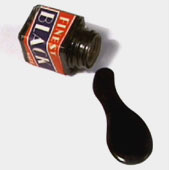As writers, we all have to learn to hear criticism. This can be tough at first, given that we see our writing as a reflection of ourselves; hate my writing, hate me, we seem to think. However, when I took my first writing workshop many years ago, I found it hardest to figure out what to say about a fellow writer’s stories. Most of the time, all I knew was that I either liked or disliked the piece, but figuring out why was difficult. Slowly, I learned how to give back feedback, but it wasn’t until grad school that I heard an instructor give any useful advice on the subject; basically, he said that a useful critique is not a value judgment, but an honest observation about a piece.
For instance, you might notice that a writer has a propensity for long, digressive descriptive sentences. This might or might not be an effective technique, but just stating this fact can help you figure out whether or not it’s to the story’s detriment or benefit. (In a script, for instance, this is usually a no-no.) Does this particular quirk help the reader get into the piece or not? Or perhaps the author uses SAT words; again, whether or not this adds or detracts depends on a lot of things.
Either way, to observe an easily verifiable fact can go a long way toward giving the writer an objective view of his work. After all, we’re all sensitive about our “babies”, but still need to know what is or isn’t working. I’ve found that the writer usually reacts with happy surprise at finding out what is or isn’t working, whereas a subjective opinion can usually shut down any useful discussion about a piece.
The other advantage of this method is that it forces us to pay attention to the actual mechanics of the writing as opposed to our opinions; we begin to deconstruct a piece the way a seamstress might take apart a garment. This is always incredibly enriching if, for no other reason, that I’ve found that when we form opinions, we usually stop examining an issue. We already know how we feel about a subject — when we judge something as good or bad, that’s the end of the analysis. We stop thinking, really. But analyzing a piece in writerly terms beyond impressions and personal effect opens us up. It also organically helps us to look at our own work in the same way. This, in turn, helps us to detach our egos from it and write from a more humble place. I’ve found this liberating since the less invested my ego is in the writing, the less I’m afraid of failing and so I end up writing more and taking bigger risks. And in the end, it should all be about the work, what makes it better and how it moves your audience, no?
